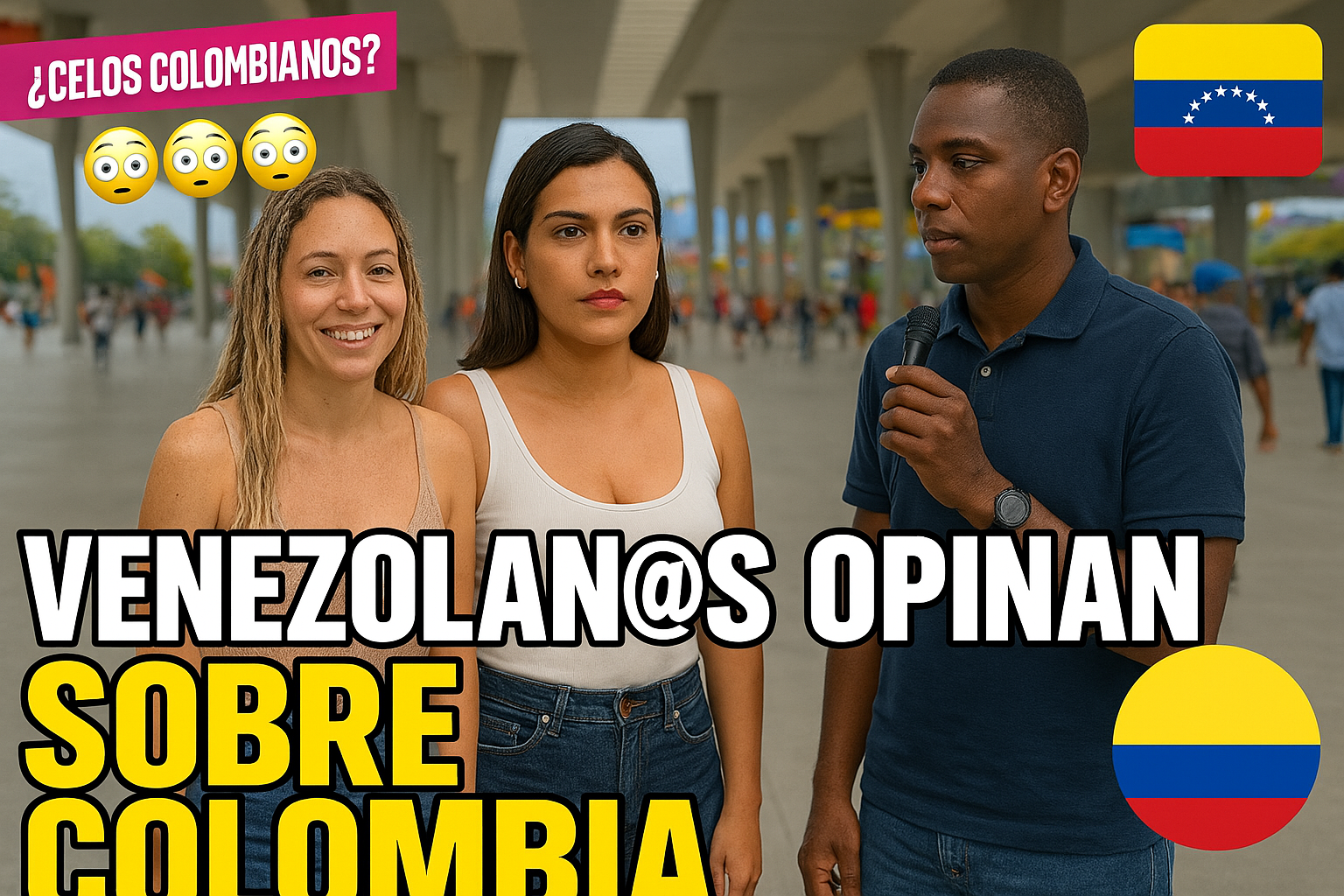Venezuelan Perspectives on Colombians: A Deep Dive into Cross-Border Relations and Cultural Understandig
What do Venezuelans really think about Colombians? This question is more complex than ever, especially considering the evolving dynamics between these two neighboring South American nations. From shared historical roots to modern migration patterns, the relationship between Venezuela and Colombia is multifaceted.
This article delves into the perspectives of Venezuelans on Colombians, exploring cultural connections, socio-economic impacts, and the overall understanding that shapes their interactions. Drawing insights from recent street interviews and socio-economic data, we aim to provide a comprehensive overview of this dynamic relationship. This article is for anyone interested in South American culture, cross-border relations, and the human stories behind migration.
Historical Context: Venezuela-Colombia Relations
To understand the current perspectives, it’s essential to look back at the historical ties that bind Venezuela and Colombia.
Shared Historical Bonds
Both nations share a common liberation history, having fought for independence from Spanish colonial rule under the leadership of Simón Bolívar. This shared history has forged a sense of camaraderie and mutual identity.
- Common Liberation History: Both countries were integral parts of Gran Colombia, Bolívar’s vision of a unified South America.
- Cultural Similarities and Differences: While sharing Spanish as a common language, regional dialects, culinary traditions, and musical styles showcase both unity and diversity.
- Traditional Trade and Border Relations: Historically, the border region has been a hub for trade and cultural exchange, fostering interdependence among communities.
Modern Evolution of Relations
In recent years, the relationship between Venezuela and Colombia has seen significant shifts due to socio-economic and political factors.
- Recent Migration Patterns: Economic challenges in Venezuela have led to a significant outflow of migrants, many of whom have sought opportunities in Colombia.
- Economic Interdependence: Despite political tensions, economic ties remain crucial, with cross-border trade playing a vital role for communities on both sides.
- Border Dynamics and Challenges: The border region faces challenges such as smuggling, illegal activities, and the presence of armed groups, impacting the daily lives of residents.
Current Venezuelan Perspectives on Colombians
Understanding the current Venezuelan perspectives on Colombians involves exploring both cultural perceptions and the impacts of social integration.
Cultural Perceptions
Cultural perceptions are often shaped by stereotypes, media portrayals, and personal experiences.
- Common Stereotypes and Their Origins: Stereotypes can range from perceptions about accents and regional behaviors to broader generalizations about national character.
- Positive Cultural Associations: Many Venezuelans appreciate Colombian music, television, and cultural exports, fostering a sense of connection.
- Areas of Mutual Appreciation: Shared values, such as family orientation and a love for celebration, often bridge cultural gaps.
Social Integration
The integration of Colombians into Venezuelan society involves interactions at various levels, from community to workplace.
- Community Interactions: Neighborhoods often become melting pots where Colombians and Venezuelans live side by side, sharing traditions and experiences.
- Workplace Dynamics: In professional settings, collaboration and mutual respect can lead to enriched work environments.
- Cultural Exchange Experiences: Cultural events, festivals, and educational programs promote understanding and appreciation of each other’s heritage.
Impact of Recent Migration Waves
The recent waves of migration from Venezuela to Colombia have had significant economic and social implications.
Economic Implications
Migration affects business relationships, labor markets, and cross-border commerce.
- Business Relationships: Colombian businesses have found opportunities in Venezuelan migrants, while Venezuelan entrepreneurs have brought new ideas and skills to Colombia.
- Labor Market Effects: The influx of Venezuelan workers has impacted the labor market, with some sectors experiencing increased competition and wage adjustments.
- Cross-Border Commerce: Trade between the two nations has seen fluctuations, influenced by migration patterns and economic policies.
Social Dynamics
Social dynamics involve community integration, challenges, successes, and support systems.
- Community Integration Stories: Many Venezuelan migrants have successfully integrated into Colombian communities, contributing to the local culture and economy.
- Challenges and Successes: Migrants face challenges such as discrimination, bureaucratic hurdles, and cultural adjustments, but many find ways to overcome these obstacles.
- Support Systems and Networks: NGOs, community organizations, and government programs provide crucial support for migrants, helping them navigate their new lives.
Looking Forward: Future of Venezuela-Colombia Relations
The future of Venezuela-Colombia relations hinges on emerging trends and proactive efforts to strengthen ties.
Emerging Trends
Changing perceptions, cultural fusion, and new opportunities for collaboration are shaping the future.
- Changing Perceptions: As interactions increase, stereotypes are challenged, and a more nuanced understanding emerges.
- Growing Cultural Fusion: Shared cultural spaces, music collaborations, and culinary innovations blend Venezuelan and Colombian traditions.
- New Opportunities for Collaboration: Joint ventures in business, education, and cultural projects create avenues for mutual growth.
Recommendations for Strengthening Ties
Strengthening ties requires cultural exchange initiatives, business cooperation, and community integration programs.
- Cultural Exchange Initiatives: Promoting cultural events, educational programs, and artistic collaborations can foster greater understanding and appreciation.
- Business Cooperation: Encouraging joint ventures, trade agreements, and investment opportunities can boost economic growth on both sides.
- Community Integration Programs: Supporting initiatives that help migrants integrate into local communities, access resources, and build social networks is crucial.
Conclusion
The relationship between Venezuelans and Colombians is complex, shaped by shared history, cultural nuances, and modern socio-economic dynamics. Understanding Venezuelan perspectives on Colombians requires acknowledging both the challenges and opportunities that arise from their interactions.
By fostering cultural exchange, promoting economic cooperation, and supporting community integration, both nations can build stronger, more resilient ties. As perceptions evolve and collaborations increase, the future of Venezuela-Colombia relations holds promise for mutual growth and understanding. The insights shared in this article, drawn from street interviews and socio-economic data, provide a valuable foundation for anyone seeking to understand this dynamic
